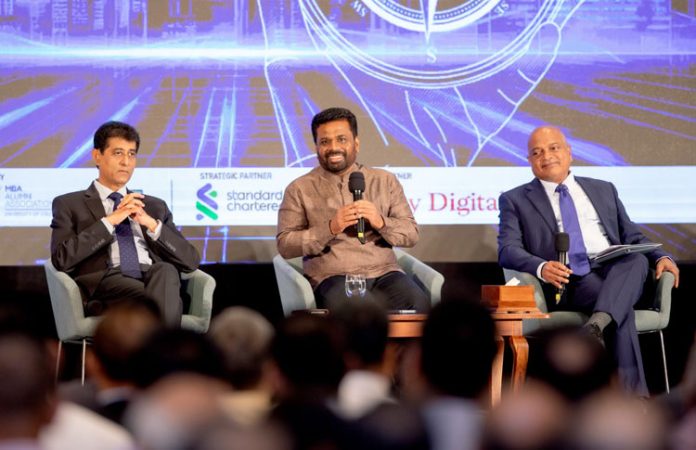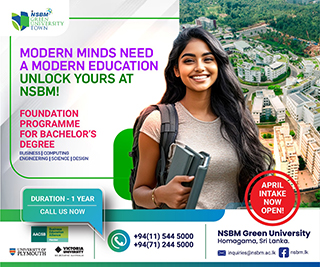President Anura Kumara Dissanayake stressed that the country has become bankrupt due to mismanagement of public finances by previous administrations and is currently operating under a probationary period of the International Monetary Fund (IMF) program.
Considering this situation, he highlighted that the 2025 Budget has taken fundamental steps to build a strong and stable economy.
The President made these comments while participating in the 2025 Post-Budget Forum organized by the University of Colombo’s Master of Business Administration (MBA) Alumni Association at the Cinnamon Life Hotel in Colombo today (19), the Presidential Media Division (PMD) said.
President Dissanayake said that the government expects to restore its debt repayment capacity by 2028 by effectively utilizing the three-year grace period provided through debt restructuring and proper economic management.
The President further said that while it takes decades for many countries in the world to recover from bankruptcy, Sri Lanka is expected to recover in a significantly shorter period of time.
The President also said that this year’s budget proposes to increase government revenue to 15.1% of the Gross Domestic Product (GDP) and emphasized the government’s commitment to prioritize spending based on identified national priorities.
The President said that this year’s budget focuses on expanding the economy by directing economic activities to rural areas and integrating citizens as participants in the economy. He expressed confidence that this approach will enhance the economic benefits available to the people.
The government plans to reintegrate marginalized groups into the economy by establishing small economic units at the village level. As a result, the country aims to create an increase in small and medium-sized enterprises (SMEs), the President said.
Highlighting the government’s commitment to supporting industries, the President said that reducing production costs will ultimately provide relief to consumers.
In order to lift the nation out of rural poverty, this year’s highest budget allocation has been directed to education. The investment aims to restructure both human and physical resources in the school system, shifting from a linear education model to a more diversified, multi-directional approach.
The budget also prioritizes public expenditure management. Given the high costs associated with the delivery of public services, the government intends to conduct a comprehensive review of public institution spending, the statement said.
President Dissanayake stressed the importance of maintaining a political authority free from corruption and stressed that fostering a culture that rejects bribery is a collective responsibility of citizens.
To establish an export-led economy, the government plans to sign new trade agreements this year and expects high export earnings, he said.
In addition, the President said that the current administration is focused on developing a port-centric economy. The budget has paid special attention to establishing an efficient transshipment hub.
Tourism promotion programs will be further strengthened through city branding programs, and major cities such as Anuradhapura, Yapahuwa and Jaffna are planned to be developed as major tourist destinations.
The President also emphasized the need to utilize the country’s diplomatic service to expand Sri Lanka’s economic opportunities, the Presidential Media Division added.
The event was attended by the President of the Ceylon Chamber of Commerce and Senior Advisor to the President on Economic Affairs and Finance, Suraj Radampola, President of the MBA Postgraduate Alumni Association of the University of Colombo, and several experts from the academic and business sectors.





